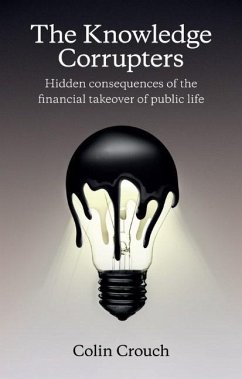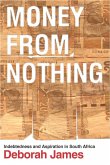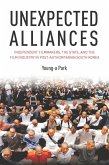In principle the advanced, market-driven world in which we now live is fuelled by knowledge, information and transparency, but in practice the processes that produce this world systematically corrupt and denigrate knowledge: this is the powerful and provocative argument advanced by Colin Crouch in his latest exploration of societies on the road to post-democracy.
Crouch shows that executives in profit-maximizing corporations have incentives to ignore or distort knowledge, especially firms in the information business of the mass media themselves, as financial knowledge increasingly trumps the other kinds of knowledge that business needs. Firms also seek to take control of public knowledge and use it for their own ends, often at the cost of other stakeholders in society. Meanwhile the transfer of similar practices to professional public services undermines professional skills and ethics - especially when these services are out-sourced to the private sector. Attempts to extricate ourselves from these problems involve reshaping the complex and often conflicting relationships among citizens, professionals, managers and financiers.
This new book by one of the most incisive critics of contemporary Western societies will be of interest to a wide range of readers, from students to policy-makers and those who work in the public and private sectors.
Vom Autor des Spiegel - Bestsellers Postdemokratie:
Im Herbst 2014 wurde bekannt, der englische National Health Service wolle in Zukunft jedem Arzt 55 Pfund bezahlen, der bei einem Patienten Demenz diagnostiziert. Die Empörung war groß: Steigt so nicht das Risiko von Fehldiagnosen? Wissen Ärzte nicht auch ohne solche Anreize, was zu tun ist? Das Beispiel zeigt, dass die Logik des Neoliberalismus trotz der großen Krise weiterhin auf dem Vormarsch ist.
Der damit verbundene Wandel betrifft alle Lebensbereiche: Schulen, Krankenhäuser und Polizei werden im Rahmen des großen Zahlenspiels umstrukturiert und dem Diktat der Kennziffern unterworfen; aus Studenten und Fahrgästen sollen Kunden werden, die agieren wie Rechenmaschinen. Auf dem Weg in die "Informationsgesellschaft" bleibt eine zentrale Ressource auf der Strecke: das Wissen selbst.
Colin Crouch zeichnet nach, wie der Neoliberalismus alternative Formen des Wissens und der Expertise korrumpiert. Anders als seine Apologeten behaupten, ist der Markt keine perfekte Wissensmaschine, die aus anonymen Entscheidungen Transparenz herbeizaubert, im Gegenteil: Lässt man die Logik der Finanzmärkte ungehindert operieren, kann sie das Immunsystem unserer Gesellschaften zerstören.
Hinweis: Dieser Artikel kann nur an eine deutsche Lieferadresse ausgeliefert werden.
Crouch shows that executives in profit-maximizing corporations have incentives to ignore or distort knowledge, especially firms in the information business of the mass media themselves, as financial knowledge increasingly trumps the other kinds of knowledge that business needs. Firms also seek to take control of public knowledge and use it for their own ends, often at the cost of other stakeholders in society. Meanwhile the transfer of similar practices to professional public services undermines professional skills and ethics - especially when these services are out-sourced to the private sector. Attempts to extricate ourselves from these problems involve reshaping the complex and often conflicting relationships among citizens, professionals, managers and financiers.
This new book by one of the most incisive critics of contemporary Western societies will be of interest to a wide range of readers, from students to policy-makers and those who work in the public and private sectors.
Vom Autor des Spiegel - Bestsellers Postdemokratie:
Im Herbst 2014 wurde bekannt, der englische National Health Service wolle in Zukunft jedem Arzt 55 Pfund bezahlen, der bei einem Patienten Demenz diagnostiziert. Die Empörung war groß: Steigt so nicht das Risiko von Fehldiagnosen? Wissen Ärzte nicht auch ohne solche Anreize, was zu tun ist? Das Beispiel zeigt, dass die Logik des Neoliberalismus trotz der großen Krise weiterhin auf dem Vormarsch ist.
Der damit verbundene Wandel betrifft alle Lebensbereiche: Schulen, Krankenhäuser und Polizei werden im Rahmen des großen Zahlenspiels umstrukturiert und dem Diktat der Kennziffern unterworfen; aus Studenten und Fahrgästen sollen Kunden werden, die agieren wie Rechenmaschinen. Auf dem Weg in die "Informationsgesellschaft" bleibt eine zentrale Ressource auf der Strecke: das Wissen selbst.
Colin Crouch zeichnet nach, wie der Neoliberalismus alternative Formen des Wissens und der Expertise korrumpiert. Anders als seine Apologeten behaupten, ist der Markt keine perfekte Wissensmaschine, die aus anonymen Entscheidungen Transparenz herbeizaubert, im Gegenteil: Lässt man die Logik der Finanzmärkte ungehindert operieren, kann sie das Immunsystem unserer Gesellschaften zerstören.
Hinweis: Dieser Artikel kann nur an eine deutsche Lieferadresse ausgeliefert werden.
"Accessible to all, here's a book to be read by all who rely on increasingly beleaguered 'public services'. We can see how reliant our politicians have become on what some have called 'policy - based evidence' rather than 'evidence-based policy'. Crouch shows with his customary incisive clarity why this hasn't worked and just what's wrong with relying so heavily on markets and neo-liberalism."
Sir Tim Brighouse
Sir Tim Brighouse








